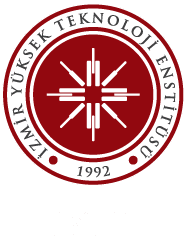MSc Thesis Defence Seminar by İrem Cumalı
You are cordially invited to the following MSc Thesis Defence Seminar by İrem Cumalı.
Title: Beam Selection Techniques in Millimeter Wave Communications
Date & Time: 19 December 2019, Thursday, 13.30
Place: Electrical and Electronics Engineering Conference Room
Advisor: Assoc. Prof. Dr. Berna ÖZBEK
Abstract: Millimeter wave (mmWave) communication is an advantageous technology which is capable of meeting the needs of future mobile networks. On the other hand, the propagation characteristics and system requirements are the restrictive factors for utilization of mmWave communication. Hybrid and digital beamforming architectures can be evaluated as worthy candidates to utilize mmWave communication. In the hybrid architecture, selection of a few number of beams by taking advantage of the sparse structure of the beamspace channel provides high spectral efficiency with low complexity.
In this thesis, the multi-user mmWave communication in sparse and dense environments are investigated. Beam selection algorithms presented in the literature are performed for the sparse environment. While the number of users is equal to the number of radio frequency (RF) chains in a sparse environment, the number of RF chains is less than the number of users in a dense environment. Therefore, an algorithm which performs beam and user selection for the dense environment is proposed. The user selection in the proposed beam and user selection algorithm is performed based on the correlation among users’ channels. Since the users’ channels are highly correlated in mmWave communication, the proposed beam and user selection algorithm improves the spectral efficiency considerably.
Furthermore, a non-uniform rectangular array (NURA) antenna configuration for mmWave communication is investigated when the digital beamforming architecture is employed. Then, a user selection algorithm is proposed under the case of lower number of antennas. The simulation results demonstrate the improvement in sum data rate through the proposed user selection algorithm in mmWave communication with NURA configuration.
In this thesis, the multi-user mmWave communication in sparse and dense environments are investigated. Beam selection algorithms presented in the literature are performed for the sparse environment. While the number of users is equal to the number of radio frequency (RF) chains in a sparse environment, the number of RF chains is less than the number of users in a dense environment. Therefore, an algorithm which performs beam and user selection for the dense environment is proposed. The user selection in the proposed beam and user selection algorithm is performed based on the correlation among users’ channels. Since the users’ channels are highly correlated in mmWave communication, the proposed beam and user selection algorithm improves the spectral efficiency considerably.
Furthermore, a non-uniform rectangular array (NURA) antenna configuration for mmWave communication is investigated when the digital beamforming architecture is employed. Then, a user selection algorithm is proposed under the case of lower number of antennas. The simulation results demonstrate the improvement in sum data rate through the proposed user selection algorithm in mmWave communication with NURA configuration.
